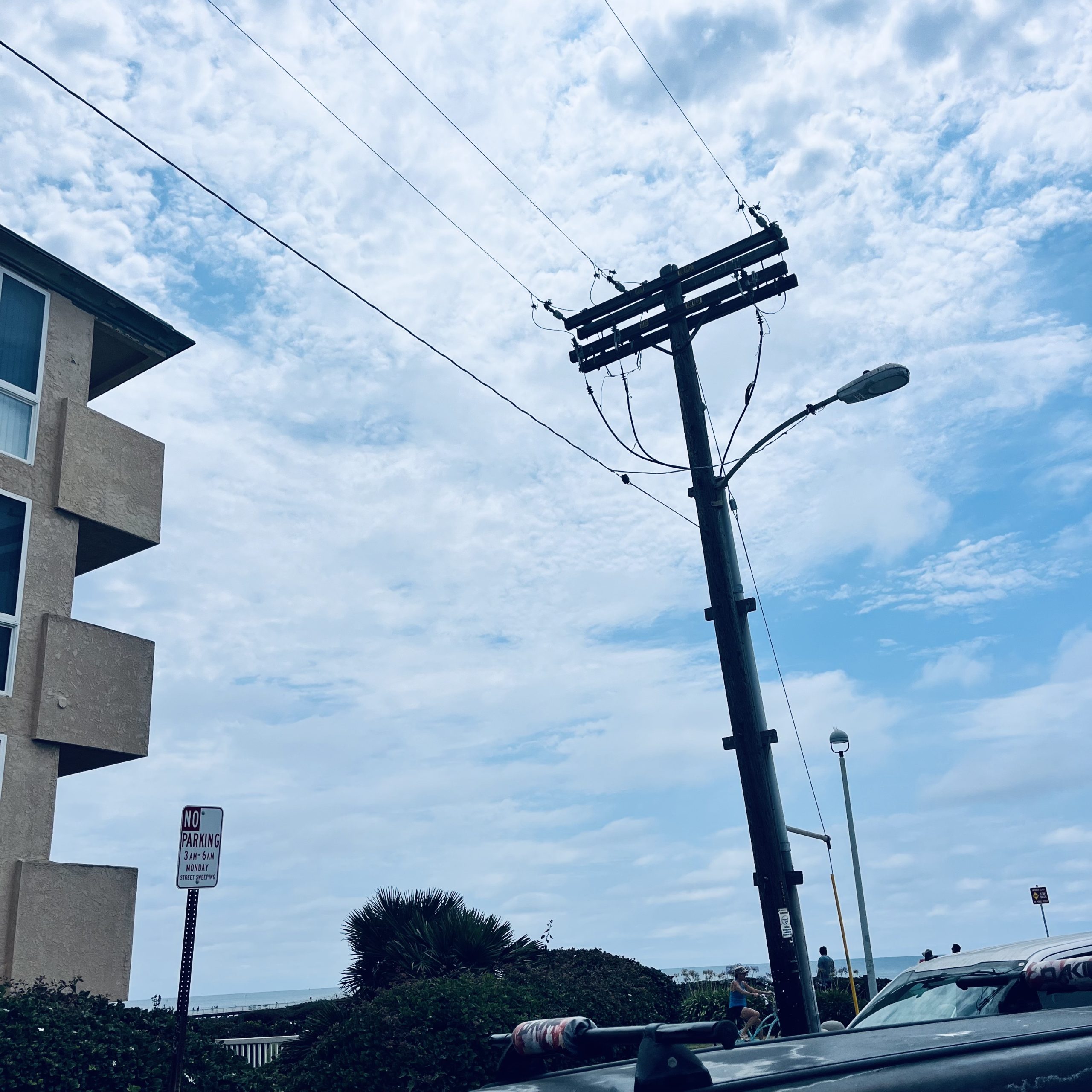
Something Reagan did right: he repudiated the KKK and white nationalists
Back in 2016 I was using Twitter far more than I used this website, to my own detriment. Today while talking about politics, centrism, and Republicans with Thomas I thought of an old tweet of mine from 2016, which was a citation of a quote from Ronald Reagan:
Civil Rights Concerning the President’s Views on the Ku Klux Klan
April 30, 1984
Dear Morris:
While in China, I have been distressed to learn that some individuals back home have questioned whether my views on the Ku Klux Klan have somehow changed since 1980. Nothing could be further from the truth.
In 1980, I said that I have no tolerance for what the Klan represents, and would have nothing to do with any groups of that type. If anything, my feelings on this subject have only grown stronger. The politics of racial hatred and religious bigotry practiced by the Klan and others have no place in this country, and are destructive of the values for which America has always stood. Those of us in public life can only resent the use of our names by those who seek political recognition for the repugnant doctrines of hate they espouse.
I firmly believe that there is no room for partisanship on this question. Democrats and Republicans alike must be resolute in disassociating ourselves from any group or individual whose political philosophy consists only of racial or religious intolerance, whose arguments are supported only by intimidation or threats of violence.
We must, and will, continue our unified rejection of such elements of hate in our political life, for while there are many issues which divide us, it is fundamental principles such as this which will always draw us together.
Sincerely,
Ronald Reagan[The Honorable Morris B. Abram, U.S. Commission on Civil Rights, 1121 Vermont Avenue, N.W., Washington, D.C. 20425]
Via The Reagan Library.
New Toys Page
Today I’ve been playing with a page with my web toys. It’s pushing me to consider what other toys I might build, too. Particularly ones which allow people to play and create.
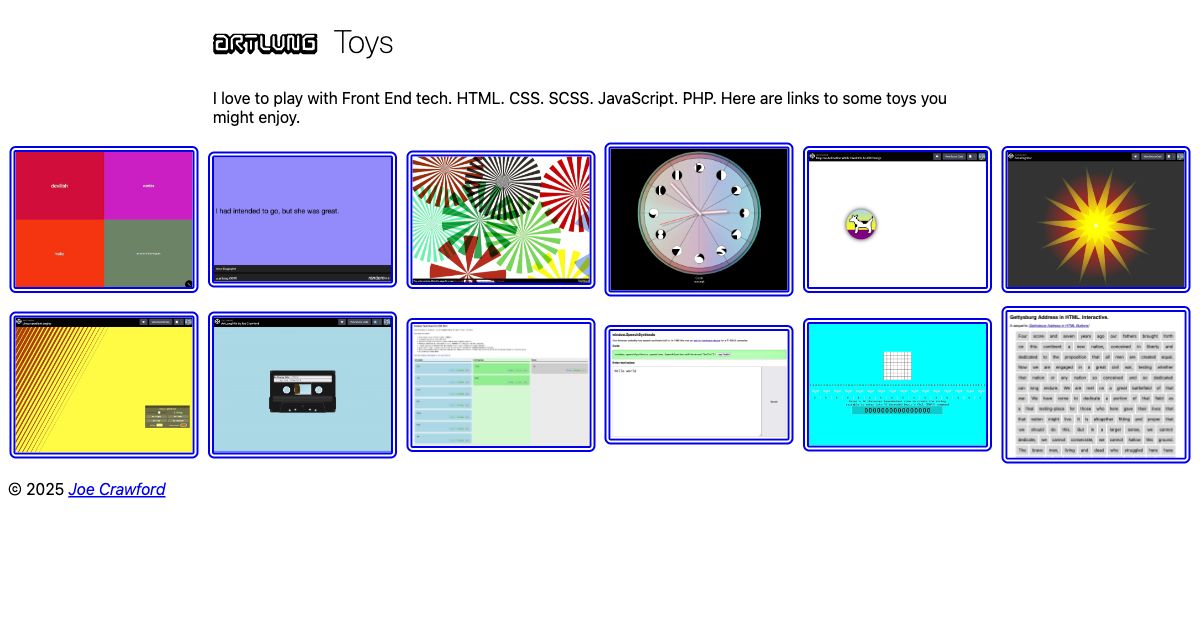
Alas, Quote of the Day
«Ceux qui peuvent vous faire croire à des absurdités, peuvent vous faire commettre des atrocités». Voltaire, 1765
“Anyone who can make you believe absurdities can make you commit atrocities.”
Spirals! Slideorama Pinwheels
The other day in answer to a CodePen Challenge, I created a thing I call Slideorama Pinwheels. I initially put it on CodePen and submitted it to the challenge / contest. And now it’s also on my Lab: Slideorama Pinwheels.
Other entrants to the challenge are on CodePen: Collection: #CodePenChallenge: Slide Interactions
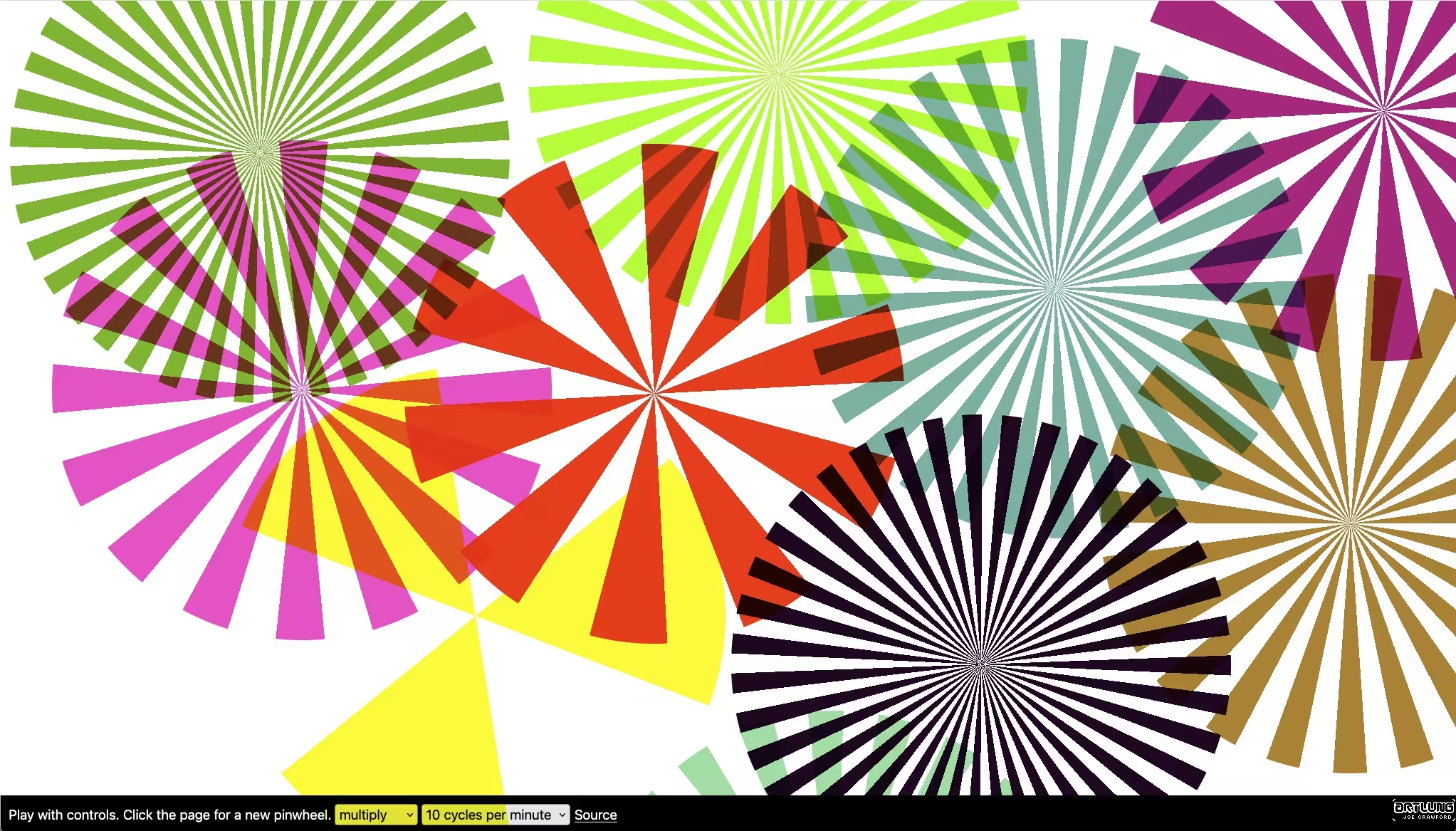
It’s been very gratifying to envision an idea and create it, and then put it out into the world and get feedback on it, and improve it incrementally. And that I can make the code available for inspection and feel good about it is also terrific.
This is the internet to me.
But I find myself not sure where or how to share little things, and also not quite sure how to find other such things outside CodePen or lucking across them.
The problem of “discovery” remains one that’s unsolved.
Anyway, thanks for reading. If you liked the toy, leave a comment below or on CodePen.
I like making stuff, still, and I’m considering what toy I’ll make next.
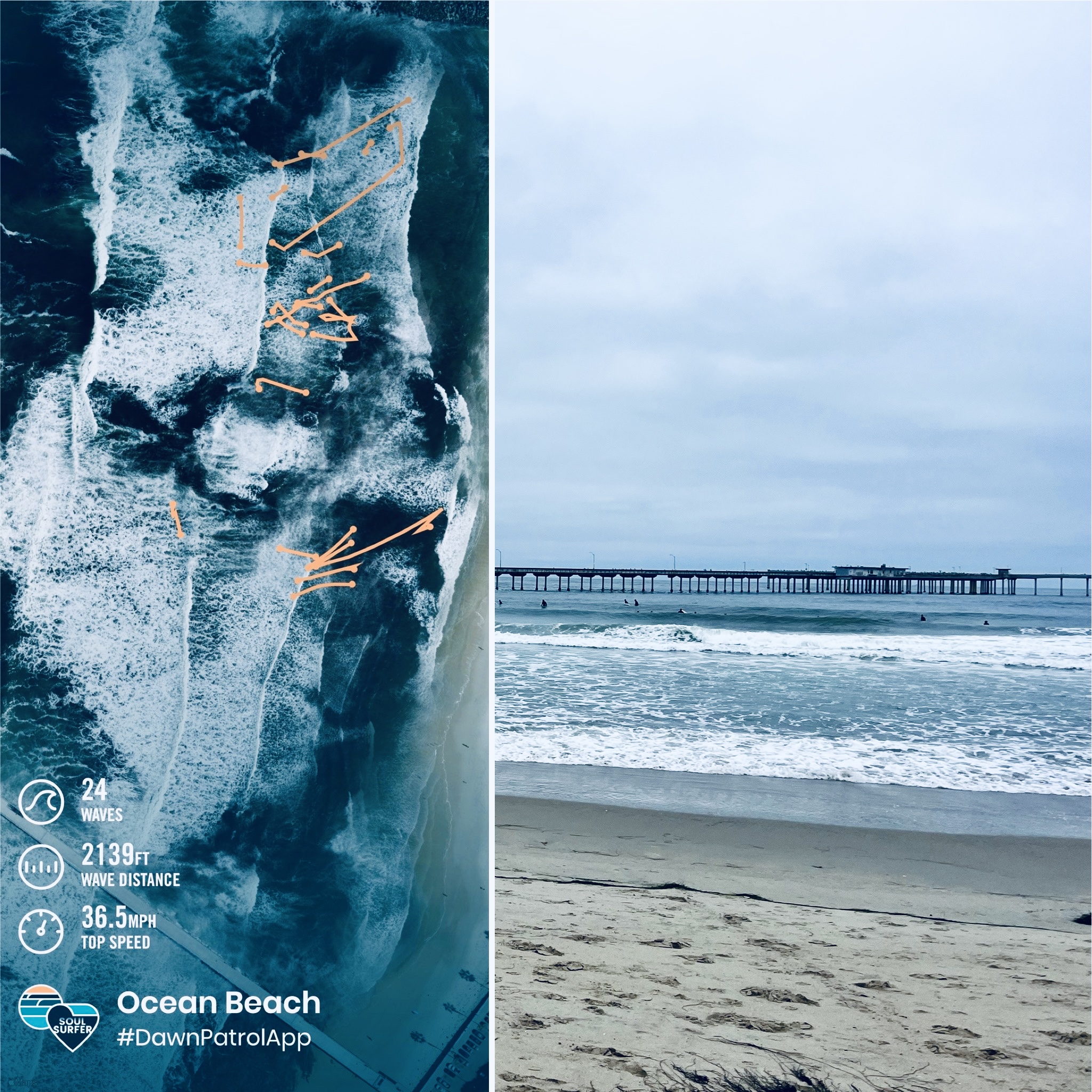
Wave shape let me get fast today. More like this please.
Getting kids hooked
AARC Opposition Statement On the FDA’s Authorization of Juul E-Cigarette Products:
Respiratory therapists are dedicated to treating patients with chronic respiratory diseases, many of which are directly linked to tobacco and nicotine use. Respiratory therapists see firsthand the long-term consequences of addiction that often begin in adolescence. The decision to allow these products on the market contradicts the FDA’s mission to protect public health and will make it harder for families and health professionals to reverse course on youth vaping.
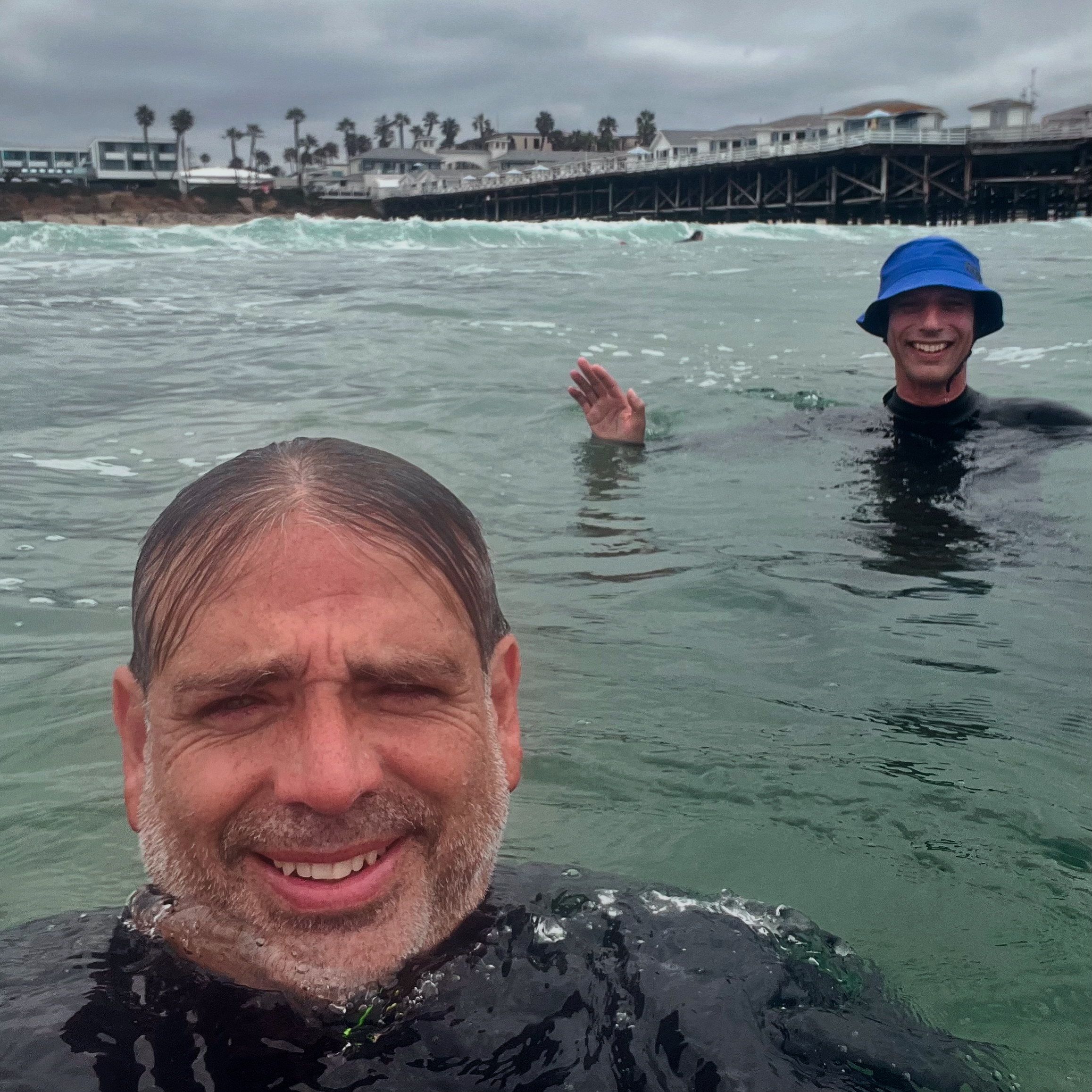
So @herebox and I rode waves and in between talked www and python and php and data before he headed back north. Delightful!
Return to Mashups
I emailed James about his post Brainstorming a tool to follow new album releases with Wikipedia. He mentions my mirrored IndieWeb Profile page. I mentioned in the email that the more interesting page from the IndieWeb wiki I mirror is the Front End Study Hall page. That page pulls in the content of the page, yes, but also polls for webmentions to the main page as well as the individual meeting notes pages.
Of course, once I emailed him I thought to myself: “okay smart guy, why don’t you write a blog post about it”. I promptly replied to myself “your first impulse was that the thought was enough for an email, no more, go with that.”
But I was wrong. So I’ll write something about what I think about making web stuff.
The impulse to synthesize data from some external source and repurpose it with data from another source is what we called in the Web 2.0 era as a mashup. I feel like the word “mashup” became a common when the bootleg edit “A Stroke of Genius” by the Freelance Hellraiser hit the internet. It “mashed up” Christina Aguilera’s Genie in the Bottle with The Strokes’ “Hard to Explain” into a whole new song.
I’ll quote Adrian Holovaty‘s site:
“Way back in 2005, I made the site chicagocrime.org (site no longer exists), which was one of the first websites to embed Google Maps — before that was even allowed. It played a small part in influencing Google to release a mapping API. The New York Times named it one of the year’s best ideas, and evidently a screenshot of the website appeared at MoMA.”
That was an era where it seemed like every web company wanted to share their data to the commons in some way to help us all make neat stuff. RSS and open and free APIs were becoming a norm, or at least valued. Phone apps, and the deprecation of the web writ large changed that. Flickr had been very much a web tool for sharing photos, and was of the web. And when Instagram came out, it was an app. It was locked into the notion of the phone. It initially was just an app, and just for iPhones.
And note Holovaty’s use of Google Maps was at least partly adversarial at the time. He reverse engineered that usage of Chicago Crime Map. I would like to think young engineers take that to heart and see that there is moral value in using tools that way. But also, I would like to think that they consider the moral framework upon which they build things.
App makers now have powerful incentives to prevent reuse and repurposing and mashups. My own experience using PESOS to automatically back up my Instagram posts to my own website has been fraught. I’ve followed the tool Instalooter for years, and it has been in conflict to keep up with Instagram’s changes, or rather Facebook/Meta has been in conflict with would-be mashups, backup tools, repurposing tools to not work properly unless you’re using the app “as intended.”
In 2009 The Guardian dubbed “A Stroke of Genius” 2001 mashup song the song of the decade, but I can’t legally buy the song. It’s “illegal” or “underground” in a way similar to reuse of Instagram posts.
Cory Doctorow in his many talks (all worthwhile) about enshittification talks about the need for “adversarial interoperability” and that builds on “right to repair” for software, or the right to just be able to refill the ink on a printer. Being able to actually use and play with the digital tools remains a tangible issue to me.
All of this is to say there are political reasons at the edges of my impulse toward IndieWeb principles. And I am also strongly in favor of the ideas around government bodies being required to make their data available on an open source basis. data.gov, a service of the US Government says right on its home page:
The United States Government’s open data site is designed to unleash the power of government open data to inform decisions by the public and policymakers, drive innovation and economic activity, achieve agency missions, and strengthen the foundation of an open and transparent government.
And the way that data would be used, is used is to create mashups. And a mashup is synthesis of data into some other thing. And if that data is open to inspection that is sort of like–if not actual–science.
And in the present moment the extent to which we drive our decisions based on science, clear thinking, rather than impulse and ideology is good. I have a real sense that the chilling effects of bullying are setting back my country years if not decades in some of the sciences.
Oof. This has gotten heady. I’ll end there.
I didn’t mean to make this a polemic. But it really kind of hit me. Regrettably it’s a bit of a thin polemic. But perhaps it’ll contribute as material for a manifesto in the future.

